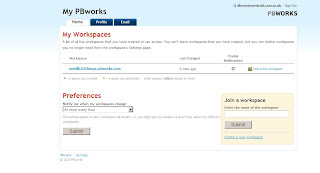A wiki is a collaborative website and authoring tool that allows users to easily add, remove and edit content. Wikipedia, the online open-community encyclopedia, is the largest and perhaps the most well known of these knowledge sharing tools, but with benefits that wikis provide the use and popularity of these tools is exploding.
You've probably used a wiki in the past - the best known is Wikipedia - ( how does wikipedia work?)
Some of the benefits that make the use of wikis so attractive are:
- Anyone (registered or unregistered, if unrestricted) can add, edit or delete content.
- Tracking tools within wikis allow you to easily keep up on what been changed and by whom.
- Earlier versions of a page can be rolled back and viewed when needed.
- Users do not need to know HTML in order to apply styles to text or add and edit content. In most cases simple syntax structure is used.
As the use of wikis has grown over the last few years, libraries all over the country have begun to use them to collaborate and share knowledge. Among their applications are subject guide wikis, book review wikis, ALA conference wikis and library staff manual wikis.
If you're still not sure what wikis can do, have a look at this:
Thing 12 - wikis
Please check your email, (look out for an email that looks like this:
and let me know if you don't get one)Once you're registered, you'll see a page which displays the wiki you're invited to contribute to:
Open the "workspace" and you'll see this wiki - now you need to contribute your "edits" so don't just view the page, EDIT it by clicking that tab.
Make your changes as per the instructions in the wiki and remember to SAVE when you're finished (button at the bottom of the screen).
BLOG
Please add a screenshot of your contribution to the wiki.
How did you like to use it?
Do you think it could be useful in the Medical Library?
How might researchers collaborating make use of wikis?






No comments:
Post a Comment